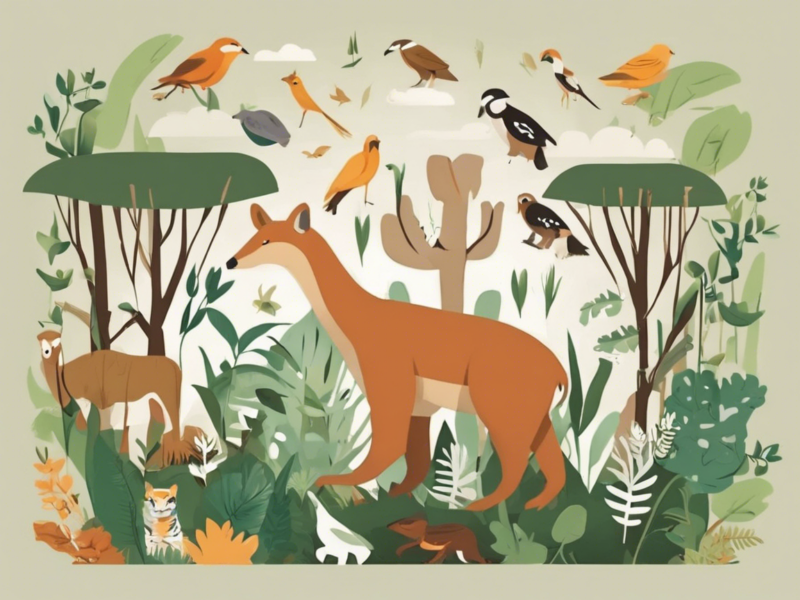Introduction
National Wildlife Day is celebrated annually on September 4th to raise awareness about the importance of wildlife conservation, preservation, and protection of endangered species and their habitats. This day serves as a reminder of the critical role that wildlife plays in maintaining the ecological balance of our planet and the need to take action to preserve and protect these precious resources for future generations. In this blog post, we will delve into the significance of National Wildlife Day, the importance of conservation and biodiversity, and how individuals can contribute to the efforts to protect wildlife.
Why National Wildlife Day Matters
National Wildlife Day is an important observance that serves as a platform to highlight the value of wildlife and the critical need to protect and preserve our natural ecosystems. Wildlife plays a vital role in maintaining the health of our planet by contributing to ecosystem services such as pollination, seed dispersal, and nutrient cycling. Additionally, wildlife tourism is a significant economic driver in many regions, generating revenue and employment opportunities for local communities.
The Importance of Conservation
Conservation is vital for safeguarding wildlife populations, protecting biodiversity, and preserving threatened species from extinction. Conservation efforts aim to address threats such as habitat destruction, poaching, climate change, pollution, and invasive species that endanger wildlife populations worldwide. By conserving biodiversity and ecosystems, we can ensure the long-term survival of species and maintain the integrity of our natural world.
Biodiversity: The Web of Life
Biodiversity refers to the variety of life forms on Earth, including different species, genetic diversity within species, and the diversity of ecosystems. Biodiversity is essential for the stability and resilience of ecosystems, as each species plays a unique role in the functioning of the ecosystem. A loss of biodiversity can have far-reaching consequences, affecting ecosystem services, food security, and human well-being.
How to Celebrate National Wildlife Day
-
Educate Yourself: Take the time to learn about local wildlife species, their habitats, and the threats they face.
-
Support Conservation Organizations: Donate to or volunteer with organizations that work to protect wildlife and their habitats.
-
Reduce Your Ecological Footprint: Adopt sustainable practices such as recycling, reducing waste, and conserving water and energy to minimize your impact on wildlife and ecosystems.
-
Advocate for Wildlife: Speak up for policies and initiatives that promote wildlife conservation and protection at the local, national, and global levels.
-
Connect with Nature: Spend time outdoors, observe wildlife in their natural habitats, and appreciate the beauty and diversity of the natural world.
Frequently Asked Questions (FAQs)
- What is the goal of National Wildlife Day?
National Wildlife Day aims to raise awareness about wildlife conservation, preservation, and protection of endangered species and their habitats.
- How can individuals contribute to wildlife conservation efforts?
Individuals can contribute to wildlife conservation by supporting conservation organizations, practicing sustainable habits, advocating for wildlife protection, and educating themselves and others about the importance of biodiversity.
- Why is biodiversity important for ecosystems?
Biodiversity is essential for the stability and resilience of ecosystems as each species plays a unique role in the functioning of the ecosystem. A loss of biodiversity can have far-reaching consequences, affecting ecosystem services and human well-being.
- What are some common threats to wildlife populations?
Common threats to wildlife populations include habitat destruction, poaching, climate change, pollution, and invasive species that endanger species worldwide.
- How can wildlife tourism benefit conservation efforts?
Wildlife tourism can generate revenue and employment opportunities for local communities, creating incentives for the conservation of wildlife and their habitats.
In conclusion, National Wildlife Day serves as a reminder of the importance of wildlife conservation and the need to protect and preserve our natural heritage. By celebrating and advocating for wildlife, we can contribute to the efforts to safeguard biodiversity and ensure a sustainable future for all species on Earth. Let us all commit to being stewards of the environment and champions for wildlife conservation on National Wildlife Day and beyond.

